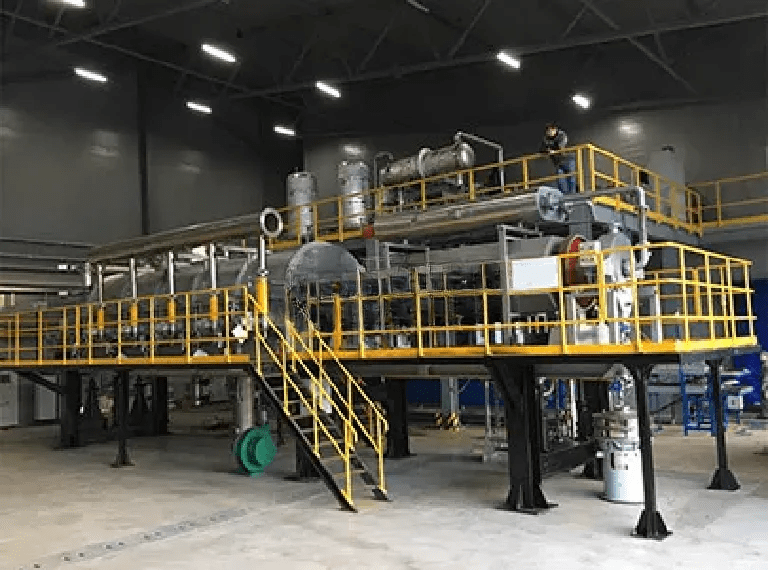
Description
The Rotary Furnace is a highly efficient thermal processing unit designed for the calcination of metal salts and the reduction of metal oxides. Widely used in industries such as metallurgy and chemical processing, this furnace plays a crucial role in applications like APT (Ammonium Paratungstate) calcination and blue tungsten reduction.
Its rotary design ensures even heat distribution, which is vital for consistent results. The furnace’s continuous rotation provides uniform exposure to heat, improving processing efficiency and product quality. Additionally, it offers precise temperature control and adaptability for various materials, making it an essential tool for large-scale industrial operations.
With its reliable performance, the Rotary Furnace is ideal for industries requiring high-efficiency material processing in a controlled environment.
Technical Details
| Description | |||
|---|---|---|---|
| SpecModel | SMC-HTE-400-4(G) | SMC-HTE-RF-600-5(G) | SMC-HTE-RF-800-6(G) |
| Tube diameter (mm) | 400 | 600 | 800 |
| Heating zone | 4 | 5 | 6 |
| Heating chamber length (mm) | 5600 | 6500 | 8000 |
| Max.temperature (°C) | 1050 | 1050 | 1050 |
| Temperature Uniformity (°C) | ±5 | ±5 | ±5 |
| Heating method | Electric/ natural gas | Electric/ natural gas | Electric/ natural gas |
| Process gas of rotary reduction furnaces | Ar/N2/H2/NH3 | Ar/N2/H2/NH3 | Ar/N2/H2/NH3 |
| Total size L×W×H (mm) | 12000 × 4000 × 4000 | 14000 × 5000 × 4500 | 16500 × 5500 × 4500 |
| The above specifications are defined according to tungsten powder reduction process. These specifications can be adjusted to the process requirements, they are not as acceptance standard, the detail spec. will be stated in the technical proposal and agreements. | The above specifications are defined according to tungsten powder reduction process. These specifications can be adjusted to the process requirements, they are not as acceptance standard, the detail spec. will be stated in the technical proposal and agreements. | The above specifications are defined according to tungsten powder reduction process. These specifications can be adjusted to the process requirements, they are not as acceptance standard, the detail spec. will be stated in the technical proposal and agreements. |
